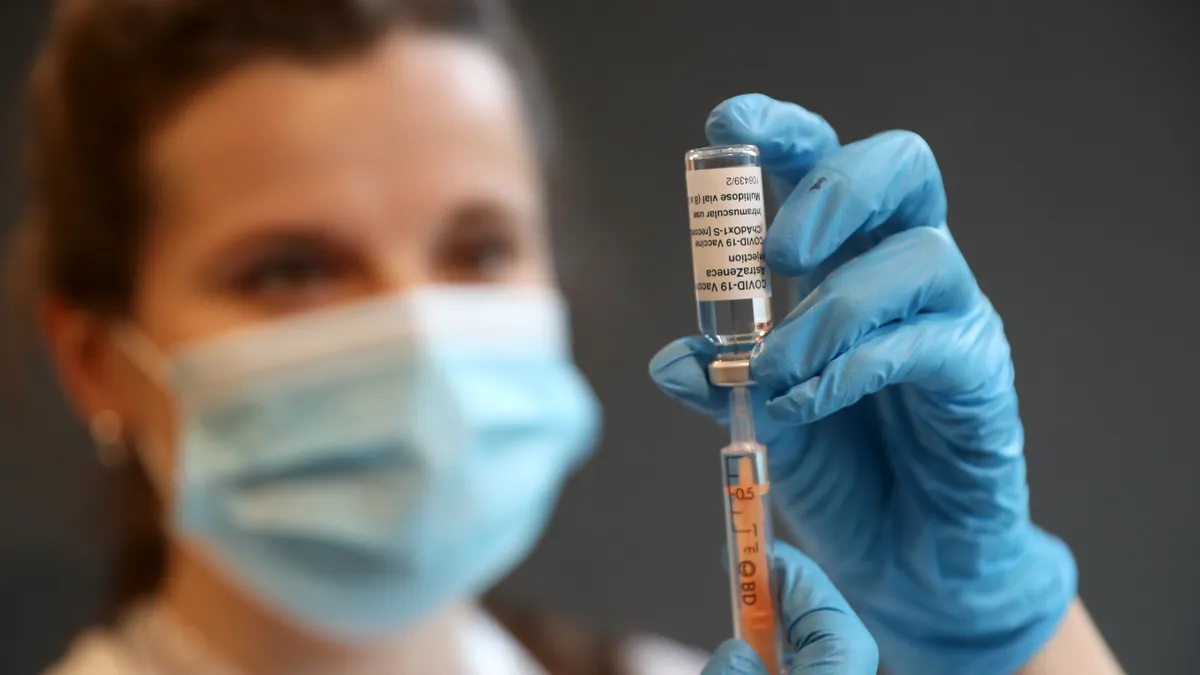NEW YORK — The passage of the Securities and Exchange Commission’s climate disclosure rule earlier this month followed a bevy of other climate-related legislation around the world. Due to the developing landscape, how businesses should account for and mitigate their carbon footprint has been a major focus for the 650 attendees of Reuters’ Responsible Business USA conference this week.
Executives across all sectors — from luxury jewelers to automotive parts manufacturers — participated in discussions, panels and roundtables explaining the sustainability strategies that their respective companies had adopted to slash emissions and comply with new regulations. While a majority of company executives discussed decarbonization across the supply chain, recycling and packaging initiatives for consumer products or responsible sourcing of raw materials, representatives from the health care sector focused on the social component of ESG.
“The patients are the most important focus for the company,” Anit Hakim, general counsel at medicine company Lilly, said during a Tuesday panel discussion. “We’re there to discover drugs, develop them [and] market them. But, at the end of the day we are getting innovative drugs to patients.”
Hakim said Lilly — which provides medications for cardiovascular conditions, diabetes, cancer, autoimmune disorders and more — had launched a goal to provide better access to healthcare for 30 million people situated in locations or settings with limited resources around the world, annually, by 2030. Like the Lilly 30x30 initiative, Hakim said the pharmaceutical company aims to center its attention on people when it comes to being a responsible business. That includes emphasizing diversity and inclusion across the company as well, Hakim said.
Hakim said that despite being a company based in the Midwest where there is “not a lot of noise” regarding DEI efforts and goals, Lilly has put people — both patients and employees — at the center of its ESG policy, noting that 49% of the company’s management team is female while 25% are minority group members, and 42% of the company’s board is also female.
Like Lilly, pharmaceutical and biotech giant AstraZeneca also said patients were core to its sustainability strategy.
“Our goal as a company … our purpose, our mission is to improve the health of people,” Aradhana Sarin, AstraZeneca’s executive director and CFO, said Tuesday. “While that means having better treatment, having diagnosis earlier … it also means [having] a healthy planet, which is integral to having a healthy body.”
Sarin said AstraZeneca keeps the wellbeing of patients — both on a personal level and a global level — in perspective when designing new medications. While making respiratory inhalers for asthma patients, the company has sought to replace a propellant that is detrimental to the environment by investing several hundred millions of dollars in research to find an alternative, she said. If successful after trials, this new propellant will replace what is currently being used in the company’s inhalers, ultimately, benefitting both the patient and the planet, Sarin said.
However, despite the healthcare sector accounting for 8.5% of greenhouse gas emissions in the U.S., Sarin said the sector lacks the “drive” needed for a green transition, and most hospitals, clinics and research labs are not running on green energy or relying on solar power.
“I would love to see more happen in the healthcare services sector and see some of these companies taking leadership [initiatives] to make facilities and hospitals that are run more sustainably,” Sarin said.












